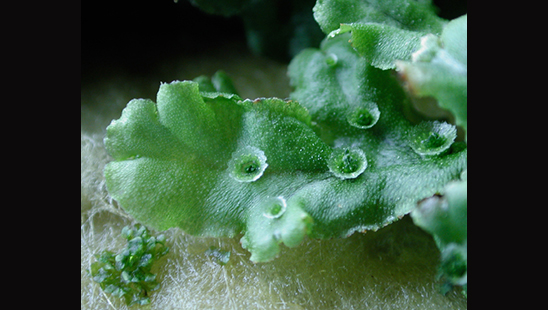UK researcher makes important finding in plant reproduction
UK researcher makes important finding in plant reproduction

A University of Kentucky researcher was part of an international group of scientists who traced the origins of sperm production in land plants to one protein. This could have important implications for plant breeding and weed management.
“Because this gene is conserved in all land plants, the generation of complete male sterile plants might be beneficial for plant breeding,” said Tomokazu Kawashima, assistant professor in the UK College of Agriculture, Food and Environment. “In addition, it may be used for weed management by introducing sterile pollens to compete against viable pollens.”
Kawashima led the project prior to joining the UK faculty when he was a senior research fellow in the Frederic Berger lab at the Gregor Mendel Institute of Molecular Plant Biology in Austria. Kawashima, institute scientists and researchers at Kyoto University in Japan found that the protein called DUO1 is responsible for the evolution of sperm in all land plants. Their findings were published recently in the academic journal Nature Communications.
“We knew from previous work that a protein called DUO1 controls the development of non-moving sperm in the model plant Arabidopsis,” said Kawashima, a faculty member in the UK Department of Plant and Soil Sciences. “We found similar DUO1 proteins in liverworts and mosses, which are representative of the first land plants and have active sperm. When we disrupted the DUO1 gene in liverworts, they were no longer able to form sperm, confirming that DUO1 has controlled sperm development since land plants evolved.”
The researchers found that a small change in the DUO1 protein that occurred at least 700 million years ago allowed it to bind to a new DNA sequence and regulate new genes. These genes were responsible for sperm development. While the protein continues to control sperm production, the gene networks have evolved to produce the different sperm types found in plants today. By analyzing other land plant ancestors, researchers were able to find the protein in stoneworts—algae that formed from an ancient ancestor common to all land plants at least 700 million years ago—confirming the DUO1 timeframe.
The entire journal article is available online at https://www.nature.com/articles/s41467-018-07728-3.
Plant & Soil Sciences Research

